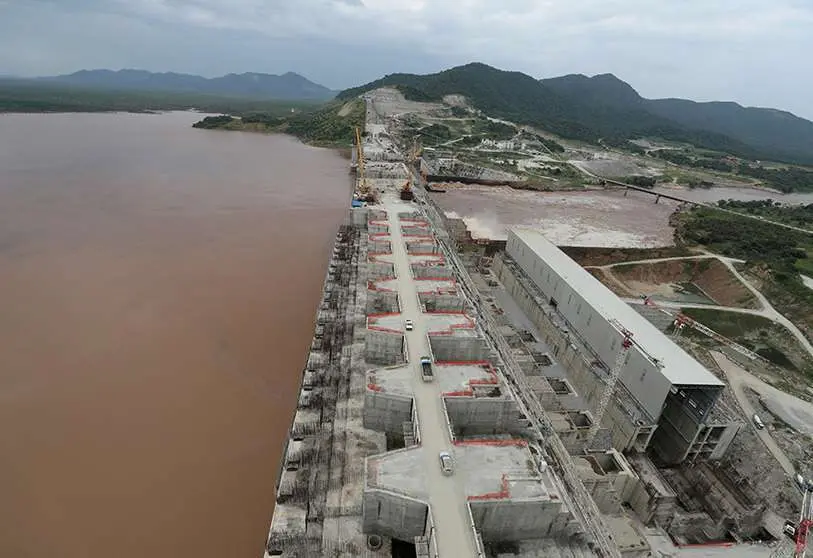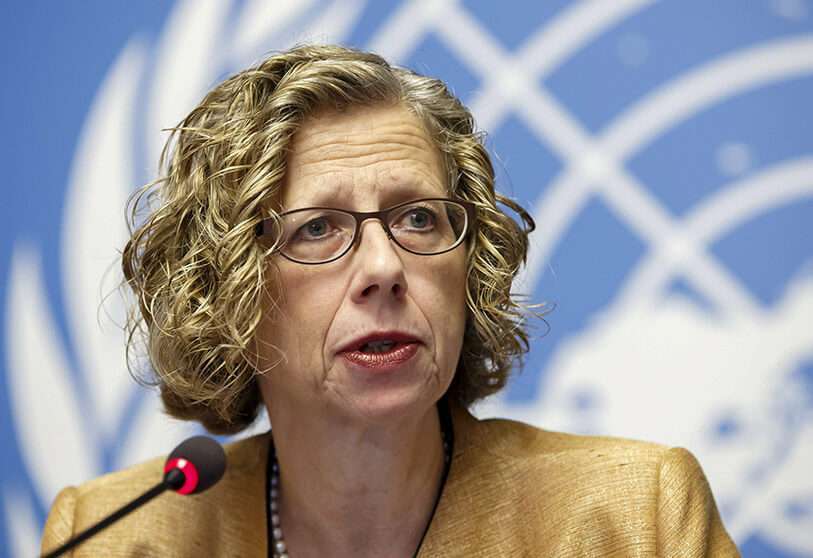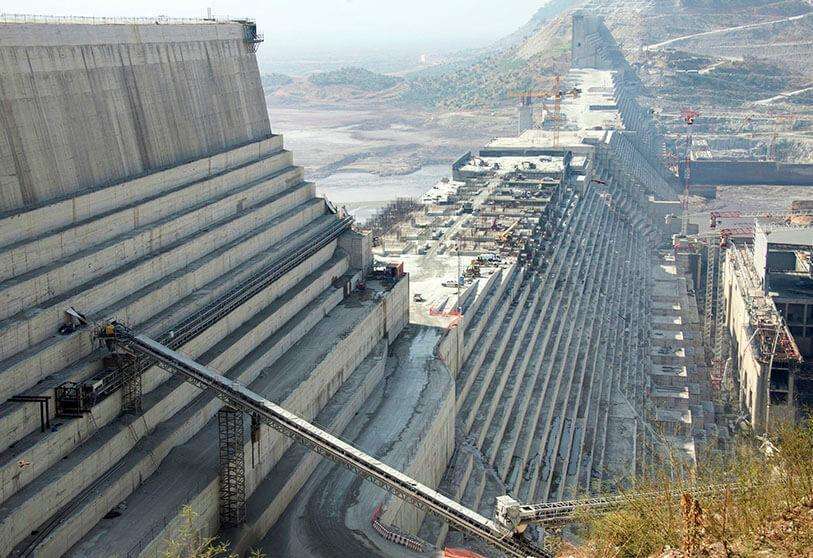United Nations glimpses possible deal over Ethiopian dam

The Grand Ethiopian Renaissance Dam (GERD) has been the subject of dispute since the project's inception by the Ethiopian authorities more than a decade ago. Cairo and Khartoum have criticised Addis Ababa for unilateral decision-making on infrastructure that would affect the water reserves of both countries.
After multiple failed negotiations, the UN announced in a statement on Thursday that it is prepared "to support Egypt, Ethiopia and Sudan in efforts to resolve the conflict". The UN is optimistic that a possible agreement can be reached in the framework of the dialogue.
"An agreement can be reached," said UN Environment Programme (UNEP) director Inger Andersen. "Cooperation between the three countries has never been more important as demand for water increases," she added.

"At the same time, they also face the threat of increased flooding and more intense droughts due to climate change," Andersen said. The Danish economist and environmentalist stressed the importance of the parties working together: "Trust, transparency and open engagement will be key to reaching an agreement".
The UN Security Council held a tough session on Thursday at the request of Egypt and Sudan to reopen the debate. Both Cairo and Khartoum appealed to the 15-member body and sent their foreign policy representatives to New York following Ethiopia's decision to proceed with the second filling of the dam.
Egyptian foreign minister Sameh Shoukry called the dam project an "existential threat" to millions of people and warned that the second filling violates an agreement signed in 2015.

The foreign minister also called on the Security Council to adopt an immediate resolution: "We do not expect the council to formulate solutions to the outstanding legal and technical issues, nor do we request that the council impose the terms of an agreement. This resolution is political in nature and its purpose is to relaunch negotiations," Shoukry said.
His Sudanese counterpart Mariam al-Mahdi urged the body to act and warned that silence would be interpreted as a green light for Ethiopia to continue filling the dam's reservoir.
Ethiopia's minister of water, irrigation and energy, Seleshi Bekele Awulachew, lashed out at its neighbours, saying that unlike Egypt and Sudan, "Ethiopia does not have significant groundwater reserves". For Addis Ababa, Cairo and Khartoum's only pretence is to prevent the country from developing at all costs.

"The AU has taken ownership of the issue and is ably facilitating our negotiation," concluded the Ethiopian representative. However, the AU's role in crisis management has been residual and ineffective.
This was acknowledged by the UN Special Envoy for the Horn of Africa, Parfait Onanga-Anyanga, who conveyed the AU's inability to produce progress during the latest AU-sponsored negotiations. In this regard, even the Arab League supported the Security Council's intervention.
The only formal proposal, issued before Thursday's session, came from Tunisia. The roadmap proposed by the Tunisian authorities calls for a halt to the filling of the dam by Ethiopia and a binding agreement between the parties on the operation of the dam within six months.
In any case, such a resolution would break the African Union-led mediation process. Addis Ababa sees the African institution as the only legitimate arbiter to resolve the dispute, and Ethiopia seeks to avoid any "interference" from other bodies.

In April 2011, Ethiopia began construction of the dam on the Blue Nile, one of the most important tributaries of the Nile, and this marked the beginning of the dispute. Addis Ababa's goal at the time was to develop the largest hydropower project on the African continent.
Ethiopia needs to generate power, not so much for export as for domestic use, and justifies the project to ensure access to electricity for the majority of its population. It should be noted that more than half of Ethiopia's 120 million citizens lack electricity.
Many Ethiopians contributed millions of dollars to the project by buying government bonds. The authorities expect to store 74 billion cubic metres of water and generate more than 5,000 megawatts of electricity once the project is completed.
Construction of the GERD is nearing completion. The dam is 80% complete and is expected to reach full capacity in 2023.

In this context, the reservoir behind the dam began filling for the first time a year ago, and last Monday Addis Ababa notified Egypt that the second phase of filling the reservoir had begun.
It is expected to capture 13.5 billion cubic metres of water during the heavy rains in July and August. Egypt and Sudan argue that any additional filling must take place in the context of an agreement.
Egypt fears that the dam will cut its reserves. However, Cairo has for centuries been lord and master of the Nile, a position over which it has lost exclusive rights. Sudan, for its part, expressed concern about the dam's safety and the effect on its own dams and water stations. Yasir Abbas, Sudan's minister of irrigation, said the Ethiopian dam could affect the operation of the Roseires national dam.
The underlying problem is the scarcity of water resources. There is not enough water to meet the needs of the 11 nations that depend on the Nile basin. Some 260 million people live in this region and Egypt is by far the country with the most citizens dependent on the Nile's waters: some 86 million people, or 94 per cent of its population.










